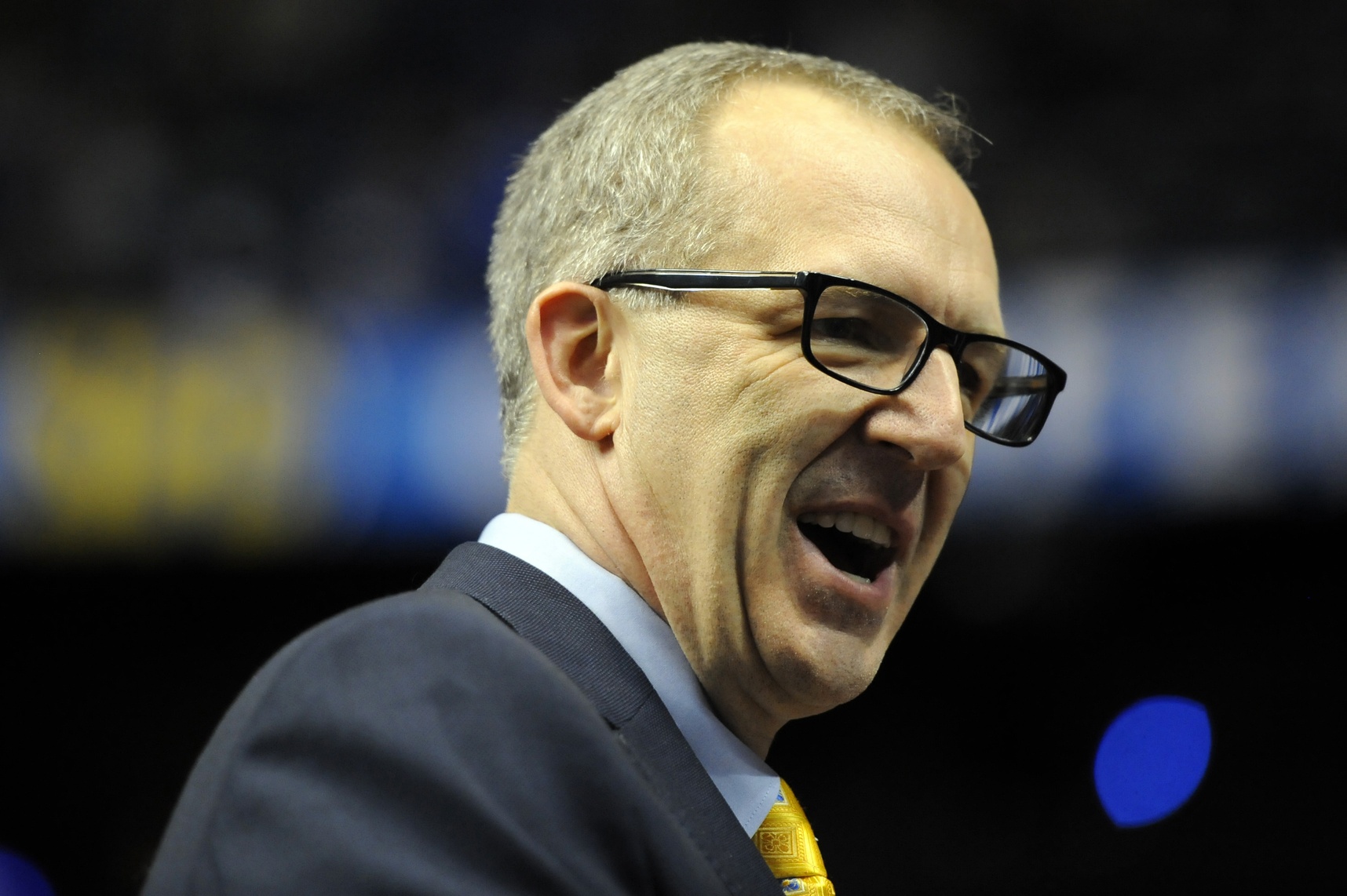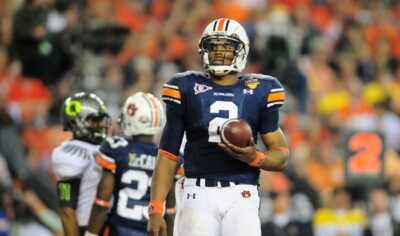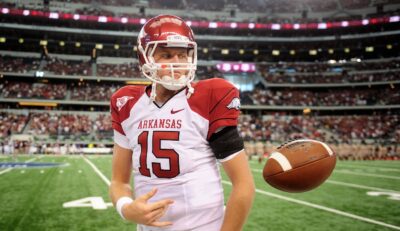
PHOENIX, Ariz. – SEC commissioner Greg Sankey may not have earned as much respect in administrative circles this year as Mike Slive enjoyed.
Though he’s been a major player in the industry for years, it’s Sankey’s first year as commissioner, whereas Slive built up equity during his tenure from 2002 to 2015.
But if you ask the common SEC fan, they may want to elect Sankey as commissioner for life. During his first football postseason, Alabama ended a three-year title drought for the SEC, and conference members finished 9-2 with multiple dominating wins.
During his first season, Sankey has proven forward-thinking, education-centric and social media-conscious (@GregSankey). He’s seemed to thoroughly relish being “Mr. Commissioner” – sometimes over the top. He’s got an energy about him, perhaps stemming from the media’s initial fascination of his early-morning workouts and marathon feats.
@SDS Beginner's skill, maybe? Or just a great, great Conference!
— Greg Sankey (@GregSankey) January 12, 2016
He’s handled difficult questions with aplomb and just last weekend held his ground when asked if he’d consider moving the Sugar Bowl from Jan. 1 to hypothetically accommodate the College Football Playoff.
He also seems very in touch with the day-to-day happenings within the SEC. When I introduced myself Saturday, he immediately brought up the fact that the SEC did not, in fact, doctor Derrick Henry’s photo in this tweet.
Congratulations, DERRICK HENRY, the 2015 SEC Offensive Player of the Year.#RollTidehttps://t.co/hYvG2p71gl pic.twitter.com/mnp9rew1Nn
— Southeastern Conference (@SEC) December 9, 2015
Some judged that the league used PhotoShop to scrub away Henry’s tattoos. Saturday Down South was not the first website to write about it, and the SEC’s initial tweet drew dozens of comments from fans. (In hindsight, the SEC did not use PhotoShop to rid the photo of Henry’s tattoos, but the filter makes it seem that way.)
Still, Sankey ribbed me for it in a good-natured way that also made me feel somewhat accountable. I imagine that plays well with the alpha males working as athletic directors and head coaches in the SEC.
I spoke to Sankey for just a few minutes during Alabama’s media day availability at the Phoenix Convention Center. Here’s the conversation in its entirety.
SDS: Are you responsible for the bowl record? Is that all you this year?
Sankey: I may be the hood ornament on the car, but there’s a lot of parts to move that car down the road. I think that’s a testament to the effort on our campuses and of the young people on our teams. I’ll take the record, though.
SDS: Obviously the money from the SEC Network has been a good thing for the schools. The timing of the launch is interesting with the transition away from cable TV and the launch of the ACC Network getting pushed back. How would you characterize the timing of your launch?
Sankey: If you go back, there was a lot of thought that we’d have a network maybe around 2008 around the same time the Big Ten introduced its network. There was a patience with (former SEC commissioner) Mike Slive and our presidential leadership. I think it’s hard to argue with the results. The indications are that we did pick the right time. The reality is, and you’ve experienced this: The interest in the Southeastern Conference, our fan base, they make it such a success.
SDS: I know you, and you mentioned Slive, you guys have always pushed compliance with NCAA regulations. I’m trying to phrase this in a way that’s not negative on anything before, but why such a drastic change? You almost never hear any whispers about NCAA violations any more in the SEC.
Sankey: Well, we have no schools on probation currently, which is the first time in this league that’s occurred since 1984. We needed to overcome those recurring problems. That doesn’t mean there won’t be issues in the future. That we won’t encounter problems. But they need not be at the center of the conversation. Mike (Slive), when he started as commissioner in 2002, was very clear about needing to address those issues. His metaphor was that it was like turning an aircraft carrier. You start and it takes some time and it’s a big task, but eventually if you stay on it, it will take place. The fact that we’ve walked championship trophies through the front door with our heads held high is a testament to his leadership and the people on our campuses and we have to continue to meet those expectations.
SDS: Is that just accountability? Or is there something else? With social media, do people feel like, ‘Well, there’s no way I’m going to get away with anything?’
Sankey: Well, you hit something. It is accountability. It is commitment on each of our campuses. Attention to detail on these issues. Putting aside the notion “if you ain’t cheating, you ain’t trying.” Accountability, again. And that is driven through – people can’t run and hide. Transfers happen. People talk. They have access to tens of thousands, maybe hundreds of thousands of people through their own social media accounts. And that is likely creating another level of care.
SDS: From your position – I saw you tweeted at a lot of the bowl games and you’ve seen a lot of the reaction from people. It seems like the perception of the conference as a whole, not just football, has so much to do with how the teams perform in bowl games and in the national championship game. Fair or not. From your position, what impact do you think Alabama playing in a game like this has on the perception of the conference as a whole?
Sankey: Well, I think both having a team in the national championship and our bowl record in the biggest games of the year are representations of the competitive success. There were a lot of articles written over the summertime that we were somehow in a downward slide. Apparently a lot of people who wrote those articles were incorrect. I think it’s good for morale. But there’s a lot happening that’s great on our campuses: building, academic programs, economic impact. But people like to write about football.
An itinerant journalist, Christopher has moved between states 11 times in seven years. Formally an injury-prone Division I 800-meter specialist, he now wanders the Rockies in search of high peaks.







